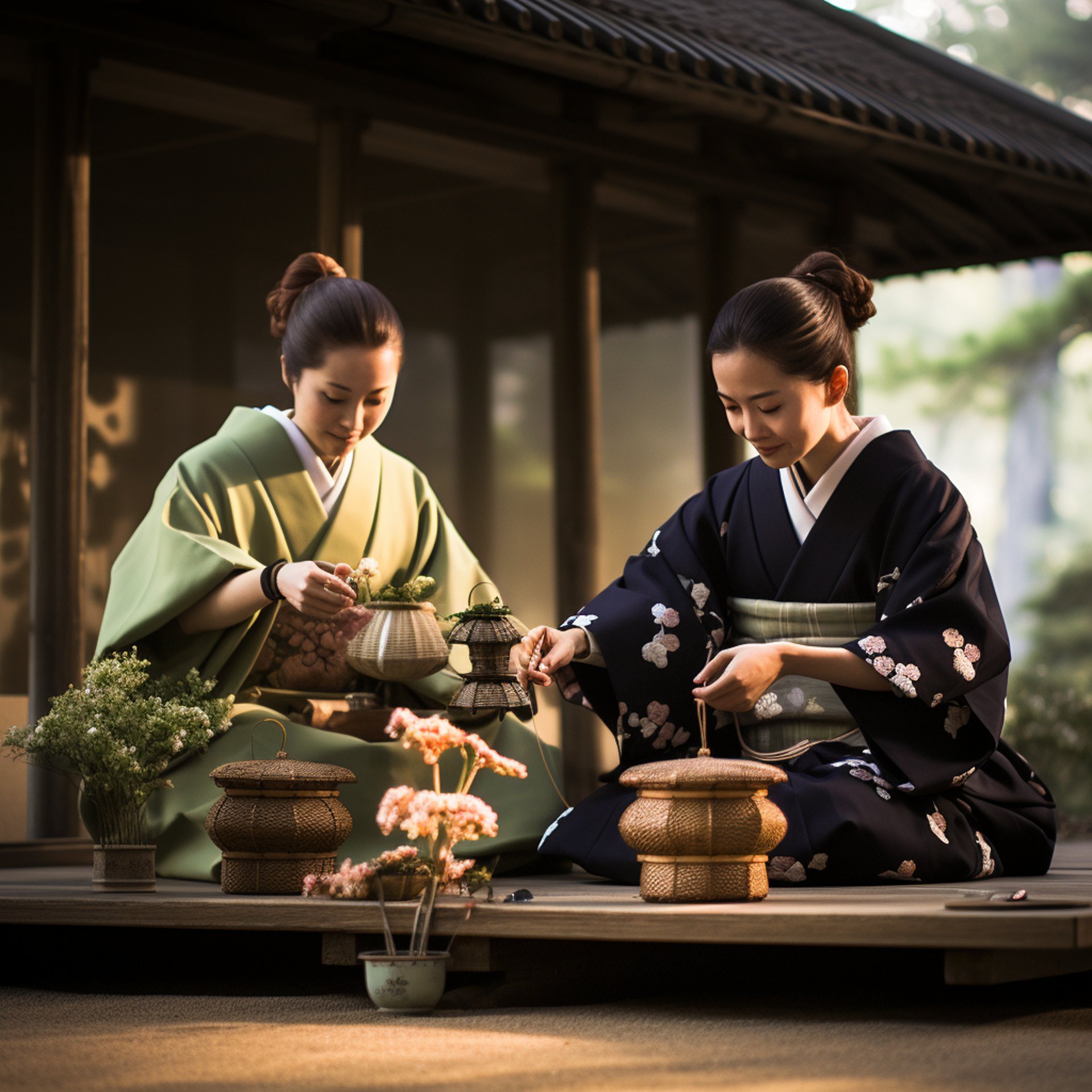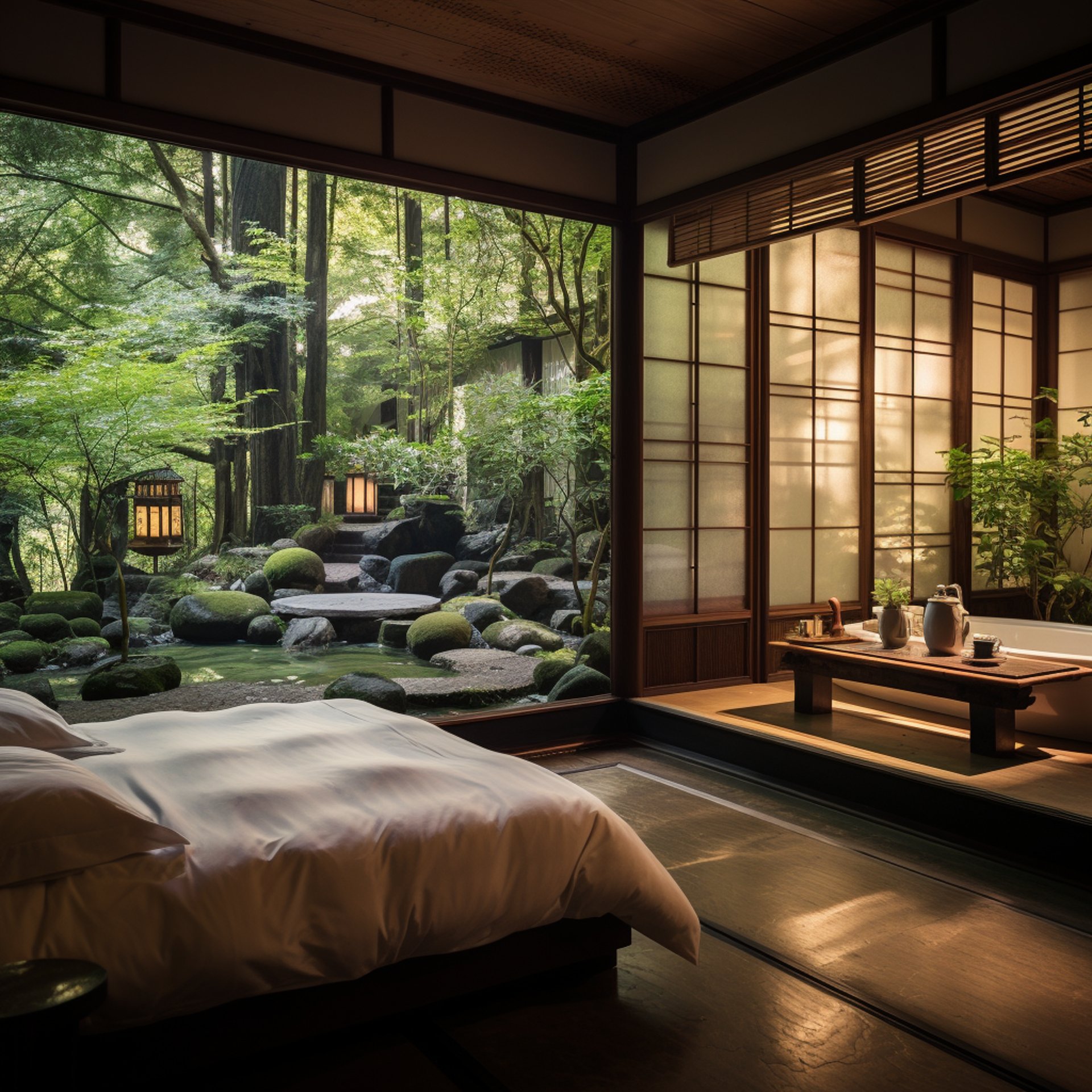Zen and the Art of Kyoto: Embracing Japan's Time-Honored Traditions
Experience the delicate balance of modernity and tradition in Kyoto, Japan. This piece will guide you through the city's serene temples, bamboo forests, and the ancient practices that remain woven into the fabric of Kyoto's daily life.
In a fast-paced world filled with constant distractions, finding peace and serenity can often feel like an elusive quest. But there is a place where ancient traditions and tranquil beauty converge, offering a sanctuary for those seeking balance and harmony. Welcome to Kyoto, the cultural heart of Japan, where the principles of Zen guide every aspect of life. Embark on a journey through the historic streets of Kyoto and discover the deep-rooted connection between Zen and this enchanting city.
Understanding Zen: A Brief Overview
Before delving into the intricate relationship between Zen and Kyoto, it is essential to grasp the fundamentals of Zen philosophy. At its core, Zen is a school of Mahayana Buddhism that emphasizes direct experience and intuition over scholarly knowledge. It strives to unravel the layers of delusion that cloud our minds and awaken us to the present moment. Through meditation and mindfulness, Zen practitioners seek enlightenment, a state of profound insight and spiritual awakening.
Zen philosophy is rooted in the belief that reality cannot be understood through logical reasoning or intellectual analysis alone. Instead, it must be experienced firsthand through direct perception. By immersing ourselves in the present moment, Zen encourages us to let go of preconceived notions and embrace the beauty and simplicity of each passing moment. It teaches us to appreciate the impermanence of all things and find peace in the ever-changing nature of existence.
The Philosophy of Zen
Central to Zen philosophy is the concept of "satori," a sudden and profound understanding that transcends intellectual comprehension. It is a moment of awakening, where the boundaries between self and the external world dissolve, and one experiences a deep sense of interconnectedness with all things. This state of enlightenment is not achieved through intellectual analysis or scholarly knowledge, but through direct experience and intuitive insight.
In Zen practice, meditation plays a crucial role in cultivating mindfulness and developing a deeper understanding of oneself and the world. By sitting in stillness and observing the breath, Zen practitioners learn to quiet the mind and let go of attachments and distractions. Through this practice, they aim to cultivate a state of pure awareness, free from the constant chatter of thoughts and judgments.
Zen's Influence on Japanese Culture
Over centuries, Zen Buddhism has profoundly shaped Japanese culture, leaving an indelible mark on art, architecture, tea ceremonies, and even martial arts. Its influence can be witnessed in the delicate craftsmanship of traditional Japanese ceramics, the meditative grace of the tea ceremony, and the disciplined focus of martial artists.
In the realm of art, Zen aesthetics emphasize simplicity, minimalism, and a deep appreciation for nature. Traditional Japanese ceramics, known as "Raku," embody these principles with their earthy textures and imperfect forms. Each piece is a testament to the Zen philosophy of finding beauty in imperfection and embracing the transient nature of life.
The tea ceremony, or "chanoyu," is another aspect of Japanese culture deeply influenced by Zen. Rooted in the principles of mindfulness and presence, the tea ceremony is a meditative ritual that celebrates the art of preparing and serving tea. Every movement, from the precise placement of the tea utensils to the graceful pouring of the tea, is performed with utmost care and attention, reflecting the Zen ideal of being fully present in each moment.
Even martial arts in Japan have been shaped by Zen philosophy. Practices such as "kendo" (swordsmanship) and "kyudo" (archery) incorporate Zen principles of discipline, focus, and self-awareness. The practitioners strive to achieve a state of "mushin," or "no-mind," where the mind is free from distractions and the body moves instinctively and effortlessly.
Overall, Zen's influence on Japanese culture extends far beyond religious practices. It has permeated every aspect of life, inspiring a profound appreciation for simplicity, mindfulness, and the interconnectedness of all things.
Insert your text here
The Historic City of Kyoto: Japan's Cultural Heart
Nestled in the western part of Japan's Honshu Island, Kyoto stands as a living testament to Japan's rich history and cultural heritage. Once the imperial capital for over a millennium, Kyoto showcases a tapestry of architectural wonders, majestic temples, and breathtaking gardens.
As you walk through the streets of Kyoto, you can't help but feel the weight of history on your shoulders. The city's rich history is palpable, with echoes of its storied past resonating through its narrow streets and ancient buildings. From the Heian period to the Edo era, Kyoto has witnessed the rise and fall of emperors, the emergence of influential samurai clans, and the advent of countless artistic movements.
Imagine yourself stepping back in time as you visit the historic sites of Kyoto. The Kiyomizu-dera Temple, perched on a hillside, offers panoramic views of the city and a glimpse into the spirituality of ancient Japan. The Fushimi Inari Taisha Shrine, with its iconic rows of vibrant red torii gates, invites you to embark on a spiritual journey through the sacred Mount Inari. And the Golden Pavilion, or Kinkaku-ji, with its shimmering golden exterior, leaves visitors in awe of its beauty and grandeur.
Kyoto's Unique Cultural Traditions
Beyond its historical significance, Kyoto is renowned for its preservation of traditional Japanese customs. The elegant art of kimono wearing, passed down through generations, is still practiced and celebrated in Kyoto. You can witness the meticulous craft of calligraphy, as skilled artists gracefully brush ink onto delicate paper, creating intricate characters that convey deep meaning and beauty.
One of the most enchanting aspects of Kyoto's cultural heritage is the world of geisha. These skilled entertainers, known for their grace, elegance, and mastery of traditional arts, have long been an integral part of Kyoto's social fabric. As you wander through the historic district of Gion, you may catch a glimpse of a geisha gracefully gliding through the streets, her white-painted face and vibrant kimono adding a touch of mystique to the city's atmosphere.
But Kyoto's cultural traditions extend beyond the realm of art and entertainment. The city is also home to traditional tea houses, where the art of tea ceremony is practiced with utmost precision and reverence. Step into one of these tranquil spaces and experience the ritual of preparing and serving tea, a process that embodies harmony, respect, and tranquility.
As you immerse yourself in Kyoto's cultural tapestry, you'll discover that the city is not just a snapshot of Japan's past, but a living, breathing testament to its enduring traditions. From the vibrant festivals that fill the streets with color and music to the intricate craftsmanship found in every corner of the city, Kyoto's cultural heritage is a treasure trove waiting to be explored.
The Intersection of Zen and Kyoto
As you immerse yourself in Kyoto's timeless allure, you will soon realize the deep interplay between Zen and the city's cultural fabric. From centuries-old Zen temples to the seamless integration of Zen principles into everyday life, Kyoto provides endless opportunities to explore the intermingling of these two revered traditions.
Zen Temples in Kyoto
Kyoto boasts an abundance of Zen temples, each offering a serene refuge amidst the bustling cityscape. The iconic Kinkaku-ji Temple, with its shimmering golden pavilion, emanates a sense of tranquility, inviting visitors to experience the serenity of Zen meditation.
Zen Practices in Kyoto's Daily Life
Zen is not confined to the sacred halls of temples; it permeates every aspect of daily life in Kyoto. Whether it's savoring a cup of matcha tea in a traditional tearoom, practicing mindfulness in a serene garden, or simply taking a contemplative stroll along the Philosopher's Path, Kyoto epitomizes the harmonious integration of Zen principles into everyday existence.
Embracing Kyoto's Zen Traditions
Beyond the mere admiration of Zen's influence, Kyoto beckons visitors to actively participate in its centuries-old traditions, offering an opportunity for personal growth and self-discovery.
Participating in Zen Meditation
Within the hallowed halls of Kyoto's Zen temples, individuals can engage in Zen meditation, known as zazen. Sitting in silence, focusing on their breath, participants strive to quiet their minds and tap into the depth of their consciousness. Through the guidance of experienced monks, visitors can embark on a transformative journey, learning to find stillness amidst the chaos of everyday life.
Experiencing Zen Gardens in Kyoto
Zen gardens, or karesansui, encapsulate the essence of Zen philosophy. These meticulously designed spaces, composed of raked gravel, rocks, and carefully placed elements, invite contemplation and reflection. Visitors to Kyoto can lose themselves in the meditative beauty of gardens such as Ryoan-ji, where simplicity and harmony converge to create a haven for introspection.
The Impact of Zen on Kyoto's Art and Architecture
Zen's influence extends beyond the spiritual realm, inspiring the aesthetic sensibilities that define Kyoto's art and architecture.
Zen Influence on Kyoto's Art
As you stroll through Kyoto's art galleries and museums, you will encounter masterpieces infused with Zen's profound essence. From ink wash paintings to delicate ceramics, Kyoto's art scene reverberates with the spirit of Zen, capturing the ephemeral nature of existence and the beauty found within imperfection.
Zen Elements in Kyoto's Architecture
Kyoto's architectural landscape stands as a testament to Zen's lasting impact. The simplicity and elegance of Zen aesthetics are reflected in the minimalistic design of Kyoto's temples and shrines, evoking a sense of tranquility and serenity.
Immerse yourself in the timeless traditions of Kyoto, where Zen and ancient traditions intertwine to create a tapestry of beauty and serenity. From the peaceful ambiance of Zen temples to the contemplative allure of Zen gardens, Kyoto provides a sanctuary for those seeking respite from the chaos of modern life. Embark on this transformative journey, and let your senses awaken to the Zen spirit that permeates every corner of this enchanting city. Embrace the art of Kyoto, and discover the profound wisdom that lies within.
